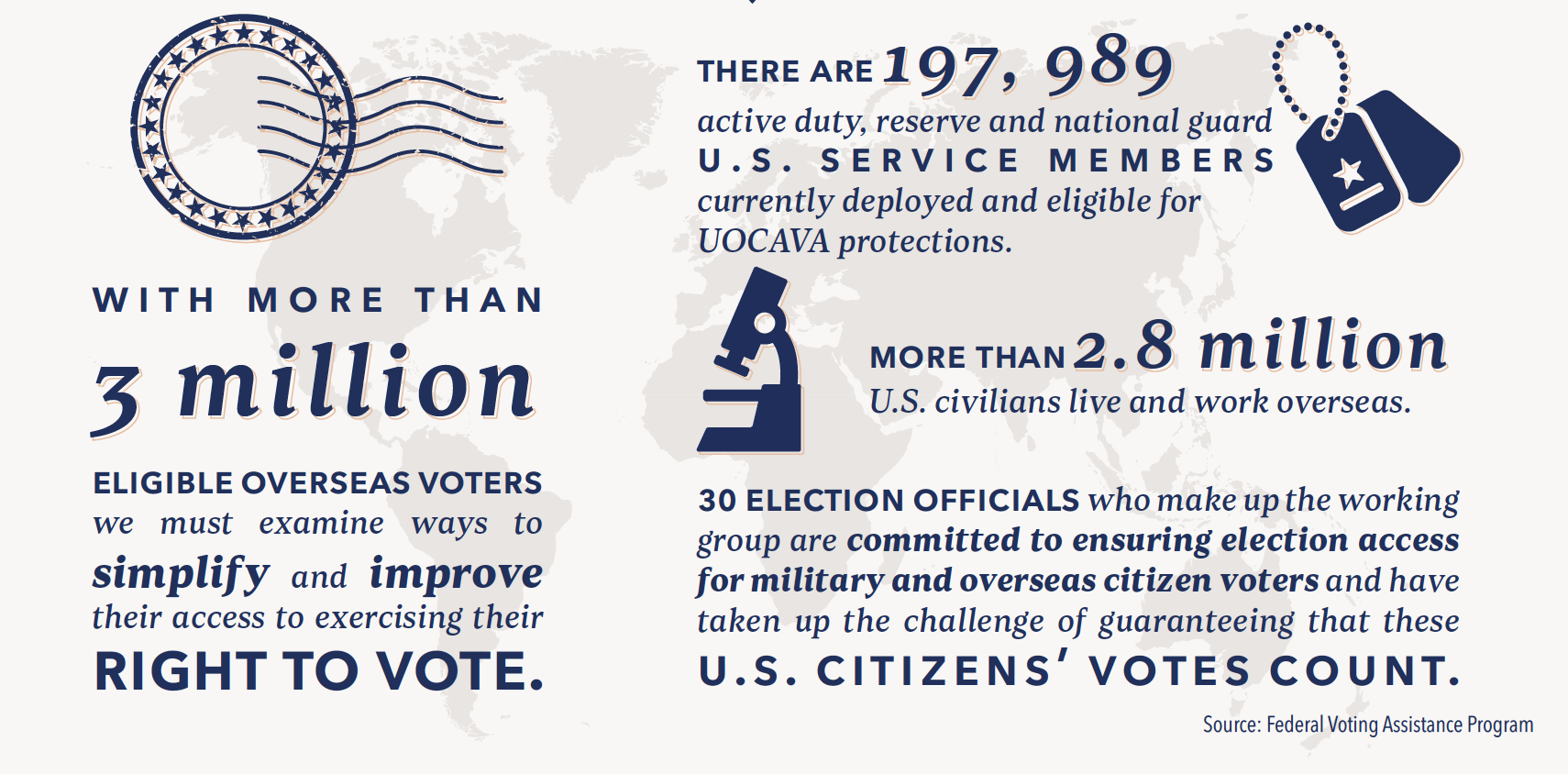
By Morgan Thomas
The Overseas Voting Initiative continues to conduct research, analyze Uniformed Overseas Citizens Absentee Voting Act voter data, and cultivate dialogue surrounding innovative strategies to enhance voter accessibility through the act.
The OVI is a collaboration between The Council of State Governments and the Department of Defense Federal Voting Assistance Program focused on improving voting access for U.S. military and overseas voters.
Service members, their families and other U.S. citizens residing overseas face many challenges when trying to obtain and cast their ballots in U.S. elections. Service members deployed to remote areas, students studying abroad or government workers working abroad in difficult-to-access locations must overcome hurdles to exercise their right to vote. Mail operations can be intermittent or even nonexistent in some locations. Power, and therefore access to electronic communications, can also be unreliable.
Voters facing any of these challenges are protected under the Uniformed Overseas Citizens Absentee Voting Act, which is also commonly referred to as UOCAVA. UOCAVA was enacted by Congress in 1986 and provides U.S. citizens and their eligible family members a legal basis for absentee voting requirements. Each U.S. citizen abroad faces unique challenges, making it difficult for both the voter and election officials.
The Overseas Voting Initiative works with local and state election officials who comprise its OVI Working Group. The Working Group is divided into subgroups that focus on specific areas of interest centered on improving voting accessibility for UOCAVA voters. Through these subgroups, the OVI has conducted research, promoted technology and policies, informed state policymakers about overseas voting issues, and shared best practices with state and local election officials and other stakeholders. Some critical areas of research include:
UOCAVA balloting solutions.
Improving communications and connections between UOCAVA citizens and their election offices.
Making voter registration easier for UOCAVA citizens.
Considering how DOD digital signature capabilities can facilitate document signing by certain UOCAVA voters.
Examining how the ballot duplication process can be improved through transparent standard operating procedures and new technologies.
In addition to these areas of research, the OVI has also created a data standard for the Election Administration and Voting Survey, or EAVS, Section B Data. This standard allows election officials and the Federal Voting Assistance Program to conduct a deeper analysis of UOCAVA voter behavior. The Working Group analyzes and makes recommendations for changes to EAVS Section B Data to improve the survey to serve the voters and election officials better.
Now in its 10th year, the OVI has conducted more than 27 Working Group meetings in 14 states and U.S. territories, one U.S. Embassy, and visited 11 military installations. In early spring 2024, the OVI will be releasing a series of modules identifying best practices for communicating with military service members, their families and citizens living abroad.




